Olympian Healers
Chiron and Achilles
In Greek mythology, the centaur, Chiron, was wounded by Hercules. Though he was immortal, it is said that he invented medicine in order to heal himself. He taught Asclepius the art of healing, which became the source of all divine medical knowledge among the Greeks. Chiron was also the teacher of the hero, Achilles, who was thought to have had some special medical knowledge.
Many depictions of Greek medicine involve battle injuries, especially of the Heroes. In this noted vase painting, Achilles tends to the wounds of Patroclus.
“...But save me. Take me to the ship, cut this arrow out of my leg, wash the blood from it with warm water and put the right things on it - the plants they say you have learned about from Achilles who learned them from Chiron, the best of the Centaurs.”—The Iliad of Homer, Book XI
Asclepius
One of the earliest Greek gods to specialize in healing was Asclepius (known to the Romans as Aesculapius). Healers and those in need of healing invoked Asclepius' name in prayer and healing ceremonies in temples and at home. A healing clan known as the Asclepiads claimed to be the descendants of Asclepius and to have inherited a knowledge and mystical power of healing from him.
Asclepius did not begin as a god, however. It is now thought that he was an actual historical figure, renowned for his healing abilities. When he and his sons, Machaon and Podalirios, are mentioned in The Iliad in approximately the 8th century BCE, they are not gods. As his "clan" of followers grew, he was elevated to divine status, and temples were built to him throughout the Mediterranean world well into late antiquity.
Apollo and Others
Apollo was often considered to be a god of healing, and in stories such as The Iliad is depicted as the bringer and reliever of plagues. Hera was a protector of women, and she and her daughter, Eileithyia, were often called upon during childbirth. The goddess Hygieia (Health), the daughter of Asclepius, was considered a guardian or personification of health.
Hippocrates
Rationality and Medicine
Virtually nothing is known of the first physician named Hippocrates, but there are considered to have been several, all of them teachers at the famous medical school on the Mediterranean island of Cos. It was in the 5th century BCE, however, that Hippocrates’ name and image began to emerge as a leader in medical research and thought.
Hippocrates is generally credited with turning away from divine notions of medicine and using observation of the body as a basis for medical knowledge. Prayers and sacrifices to the gods did not hold a central place in his theories, but changes in diet, beneficial drugs, and keeping the body "in balance" were the key.
Central to his physiology and ideas on illness was the humoral theory of health, whereby the four bodily fluids, or humors, of blood, phlegm, yellow bile, and black bile needed to be kept in balance. Illness was caused when these fluids became out of balance, sometimes requiring the reduction in the body of a humor through bloodletting or purging.
The Hippocratic Corpus— the collected writings attributed to Hippocrates—contains about sixty works on a variety of medical topics, including diagnosis, epidemics, obstetrics, pediatrics, nutrition, and surgery. There are assumed to be several authors, however, probably scattered over several centuries, and different treatises often give contradictory advice.
Phaedrus: “Hippocrates the Asclepiad says that the nature even of the body can only be understood as a whole.”
Socrates: “Yes, friend, and he was right:-still, we ought not to be content with the name of Hippocrates, but to examine and see whether his argument agrees with his conception of nature.”
Phaedrus: “I agree.”
Socrates: “Then consider what truth, as well as Hippocrates, says about this or about any other nature. …”—Plato’s Phaedrus
The Oath
The Hippocratic Oath (Ορκος) is perhaps the most widely known of Greek medical texts. It requires a new physician to swear upon a number of healing gods that he will uphold a number of professional ethical standards. It also strongly binds the student to his teacher and the greater community of physicians with responsibilities similar to that of a family member. In fact, the creation of the Oath may have marked the early stages of medical training to those outside the first families of Hippocratic medicine, the Asclepiads of Kos, by requiring strict loyalty.
Over the centuries, it has been rewritten often in order to suit the values of different cultures influenced by Greek medicine. Contrary to popular belief, the Hippocratic Oath is not required by most modern medical schools, although some have adopted modern versions that suit many in the profession in the 21st century. It also does not explicitly contain the phrase, “First, do no harm,” which is commonly attributed to it.
Translation of the Hippocratic Oath
Translated by Michael North, National Library of Medicine, 2002.I swear by Apollo the physician, and Asclepius, and Hygieia and Panacea and all the gods and goddesses as my witnesses, that, according to my ability and judgement, I will keep this Oath and this contract:
To hold him who taught me this art equally dear to me as my parents, to be a partner in life with him, and to fulfill his needs when required; to look upon his offspring as equals to my own siblings, and to teach them this art, if they shall wish to learn it, without fee or contract; and that by the set rules, lectures, and every other mode of instruction, I will impart a knowledge of the art to my own sons, and those of my teachers, and to students bound by this contract and having sworn this Oath to the law of medicine, but to no others.
I will use those dietary regimens which will benefit my patients according to my greatest ability and judgement, and I will do no harm or injustice to them.
I will not give a lethal drug to anyone if I am asked, nor will I advise such a plan; and similarly I will not give a woman a pessary to cause an abortion.
In purity and according to divine law will I carry out my life and my art.
I will not use the knife, even upon those suffering from stones, but I will leave this to those who are trained in this craft.
Into whatever homes I go, I will enter them for the benefit of the sick, avoiding any voluntary act of impropriety or corruption, including the seduction of women or men, whether they are free men or slaves.
Whatever I see or hear in the lives of my patients, whether in connection with my professional practice or not, which ought not to be spoken of outside, I will keep secret, as considering all such things to be private.
So long as I maintain this Oath faithfully and without corruption, may it be granted to me to partake of life fully and the practice of my art, gaining the respect of all men for all time. However, should I transgress this Oath and violate it, may the opposite be my fate.
Aristotle
Born in 384 BCE the son of a physician at Stageira in Macedonia, Aristotle was one of the most noted philosophers and scientists of the ancient world. Once a student of Plato at his Academy in Athens, Aristotle adopted his own methods of inquiry different from that of his teacher. Unlike Plato, Aristotle felt that one could, and in fact must, trust one's senses in the investigation of knowledge and reality.
At Plato's death, Aristotle was not chosen to be his successor as head of the Academy and he left Athens. He eventually returned to Macedonia, where he was teacher to the young Alexander the Great. After Alexander conquered Athens and the rest of the Middle East and Egypt, Aristotle returned to Athens to found the Lyceum, a school similar to Plato's Academy. After Alexander's death, Aristotle was forced to flee Athens to the nearby island of Euboea, where he died soon afterwards in 322 BCE.
Aristotle's writings cover a wide variety of subjects, from human and animal anatomy, to metaphysics, statesmanship, and poetry. His treatises on human anatomy are lost, but his many works on animals advocate direct observation and anatomical comparisons between species through dissection. He wrote extensively on the soul, classifying the souls of different forms of life and inanimate objects, including the earth and the heavens. Aristotle wrote extensively on animal life and both sexual and asexual reproduction, making him in many ways the founder of Western natural philosophy.
Galen
Galen was born in Pergamos in Asia Minor in the year 129 CE After receiving medical training in Smyrna and Alexandria, he gained fame as a surgeon to the gladiators of Pergamos. He was eventually summoned to Rome to be the physician of the Emperor Marcus Aurelius. Galen spent the rest of his life at the Court writing an enormous corpus of medical works until his death in 201 CE.
Taking Hippocrates’ notions of the humors and pathology, Galen incorporated the anatomical knowledge of noted Alexandrians such as Herophilus of Chalcedon (335–280 BCE). A supporter of observation and reasoning, he was one of the first experimental physiologists, researching the function of the kidneys and the spinal cord in controlled experiments.
Galen’s works in many ways came to symbolize Greek medicine to the medical scholars of Europe and the Middle East for the next fifteen centuries. His message of observation and experimentation were largely lost, however, and his theories became dogma throughout the West. In the mid-16th century, however, his message that observation and investigation were required for through medical research began to emerge, and modern methods of such research finally arose.
Iteration=0After Galen
Dioscorides: Early Pharmacology
Dioscorides of Anazarbus was a Greek physician born in southeast Asia Minor in the Roman Empire in the first few decades CE During his lifetime, Dioscorides traveled extensively seeking medicinal substances from all over the Roman and Greek world. He benefited greatly from the ease of travel across wide stretches of territory under the control of the Roman Empire at the height of its growth.
Between about 50–70 CE., he wrote his fundamental work, Peri ulhV iatrikhV, known in Latin as De materia medica. This five book study focused upon "the preparation, properties, and testing of drugs" and became the most central pharmacological work in Europe and the Middle East for the next sixteen centuries.
As was the case with many Greek medical texts, De materia medica was treated as dogma for many years. By the mid-16th century, however, his message that investigation and experimentation were crucial to pharmacology began to emerge and modern research into medicines began.
Pythagoras
Pythagoras (born about 580 BCE) was a Greek philosopher best known today for his mathematical theorems. He was better known in his own time for his philosophy of the mind and soul which put an emphasis upon purity and catharsis. While few of his or his followers’ writings are extant, it was believed that he promoted health through a special vegetarian diet.
Artemidorus
In the middle of the second century CE, Artemidorus of Daldis in Asia Minor wrote Oneirocritica, a work dedicated to the interpretation of dreams. He gathered evidence during interviews with thousands of people about their dreams. While his work has often been dismissed as mere divination, the careful study of dreams by modern psychiatrists has brought them back into the realm of scientific observation.
“In later antiquity Artemidorus of Daldis was regarded as the greatest authority on dream-interpretation ...”—Sigmund Freud, The Interpretation of Dreams
The Loss and Recovery of Greek Medicine in the West
After the fall of the Roman Empire in the 5th century, most works of the Greek physicians were lost to Western Europe.
In the 14th and 15th centuries, however, Western Europeans began to rediscover Greek scientific and medical texts. This was due in part to the discovery of Arab repositories of learning in Spain and elsewhere during the Crusades as well as the immigration to Italy of Byzantine scholars at the fall of Constantinople in 1453.
At first Greek theories, prescriptions, and procedures were accepted as medical dogma bout human anatomy, physiology, and treatment. Later, however, the Greeks’ entreaties to their readers to observe the human body and the world around them won out, and scholars began to perform their own research, leading to much of the medicine practiced in the West today.
Early Printing of Greek Medical Texts
A great deal of Europe’s knowledge of Greek medicine and culture entered Europe through Italy in the fifteenth century. Not long after the invention of printing in the 1450s, Aldo Manuzio (1452–1516), also known as Aldus Manutius, began editing and printing Greek authors in their original language by finding the best manuscript texts available and creating new, highly legible Greek fonts.
His early editions of Hippocrates, Aristotle, Dioscorides, and other Greek authors marked the first time that many of them had been printed and helped establish their places in the European cultural canon.
About Ancient Greek Medicine
The content of this website is drawn from a display held in the History of Medicine Division of the National Library of Medicine, March 6 through June 15, 2008.
The display was curated by Michael North who was then Head of Rare Books at NLM.
You can view the original website created to accompany the display, including the full credits for the project, archived in the NLM Institutional Archives web collection.
This site was designed by Astriata, LLC.

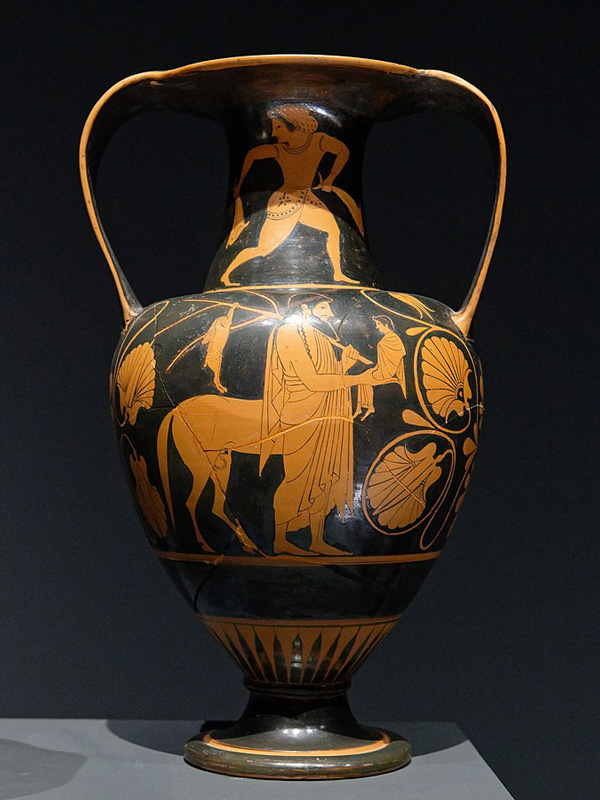
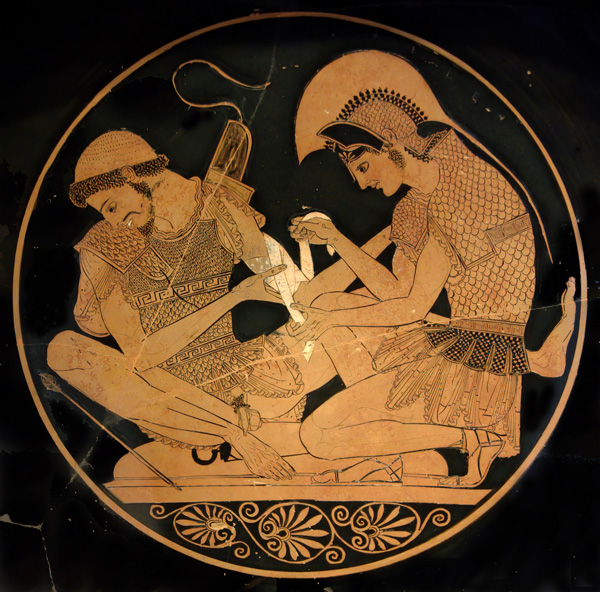
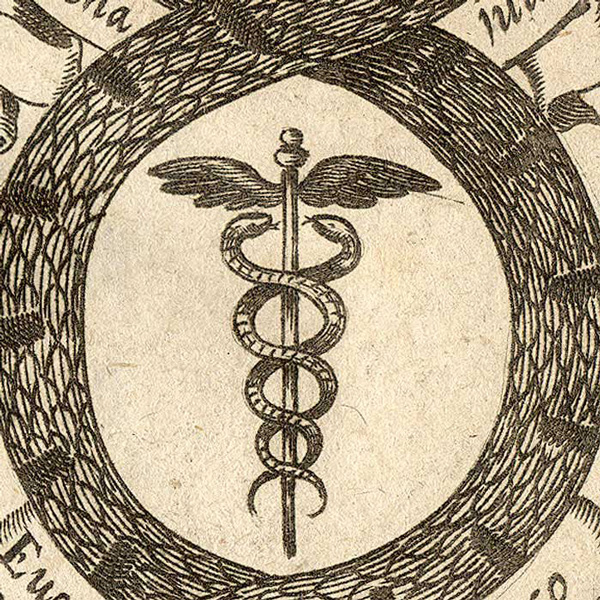
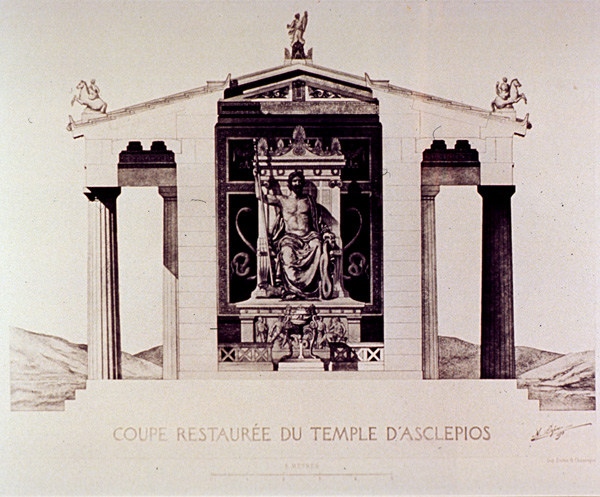
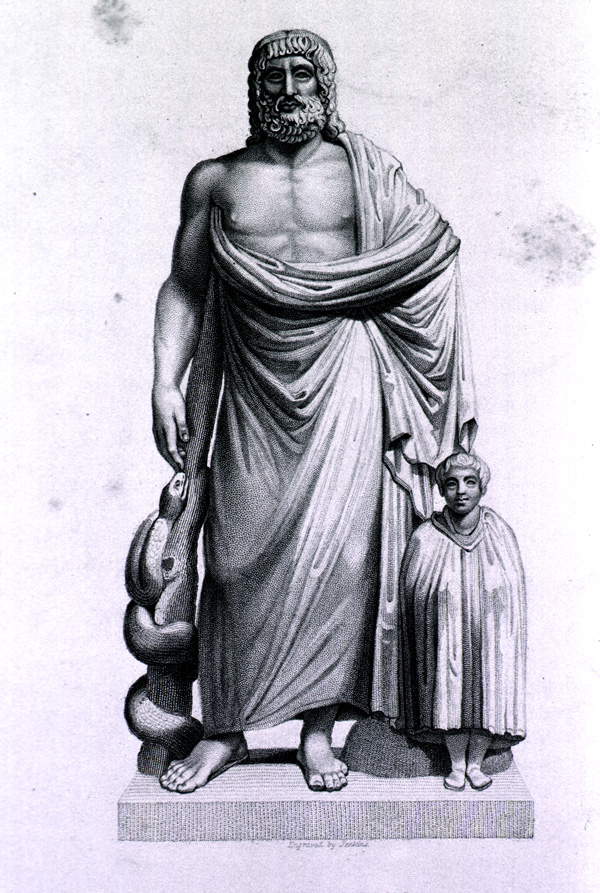
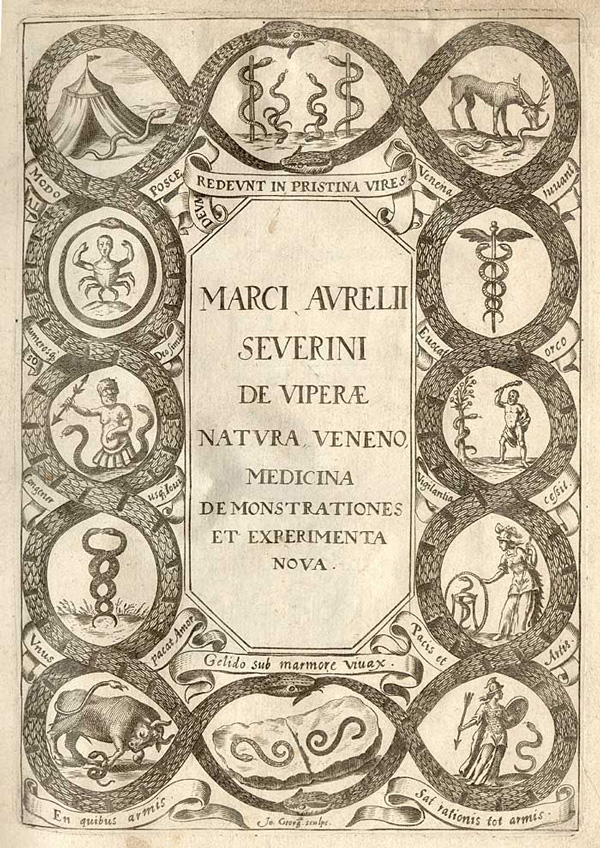
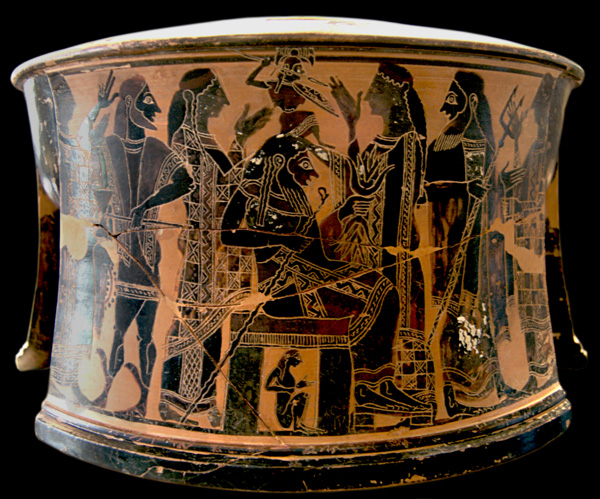
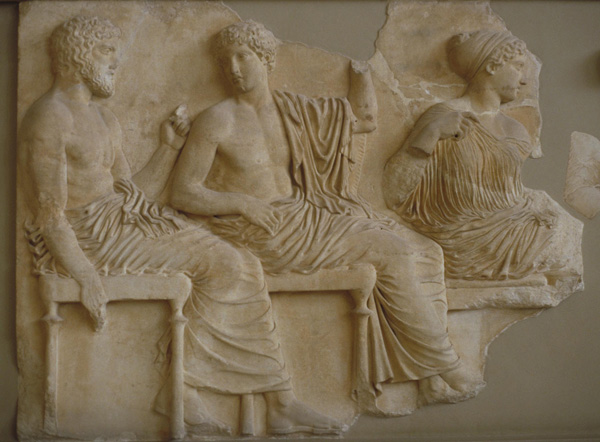
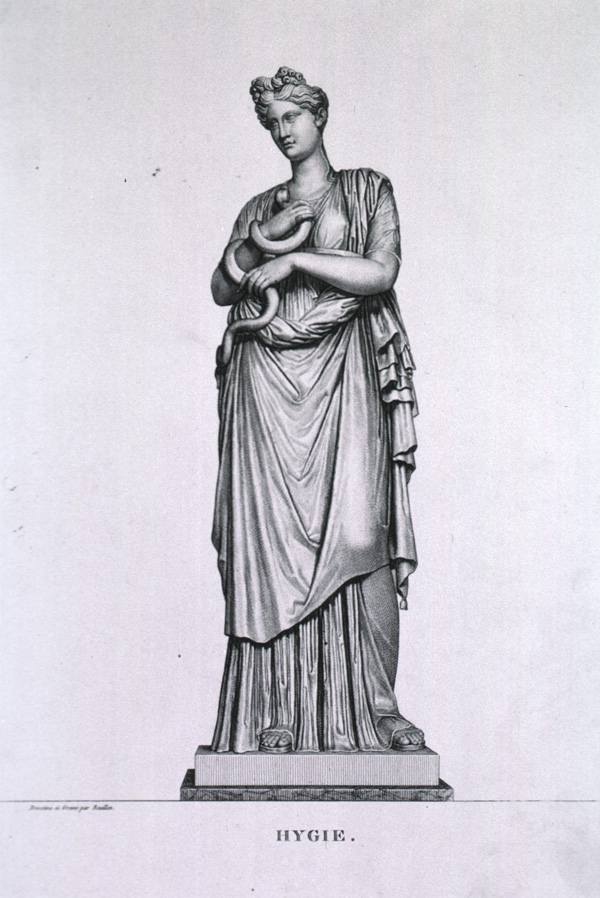
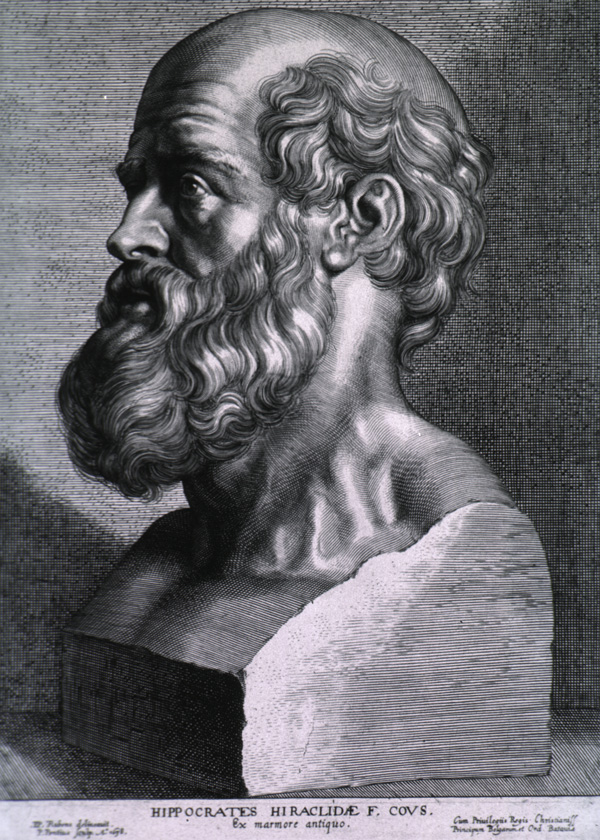
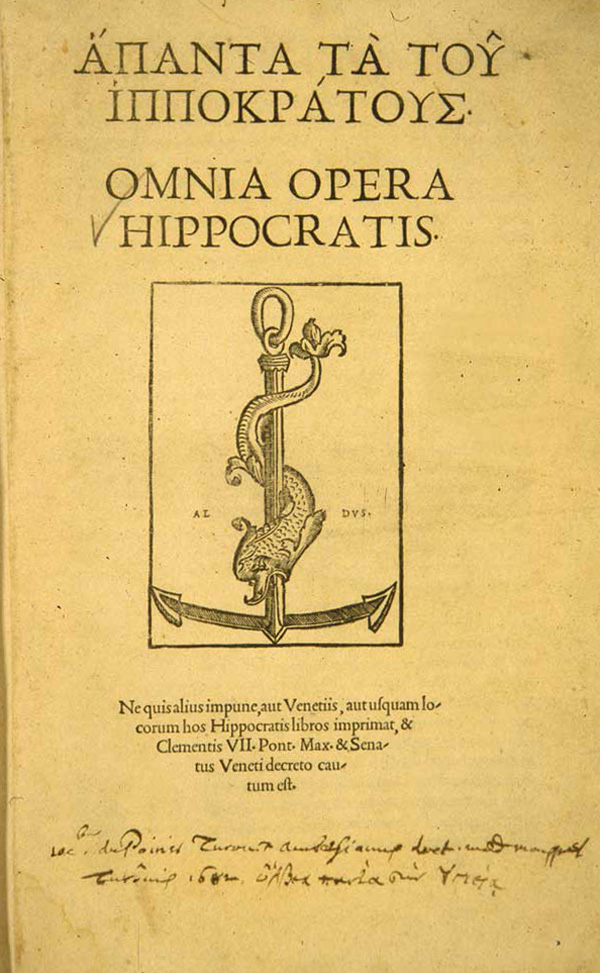
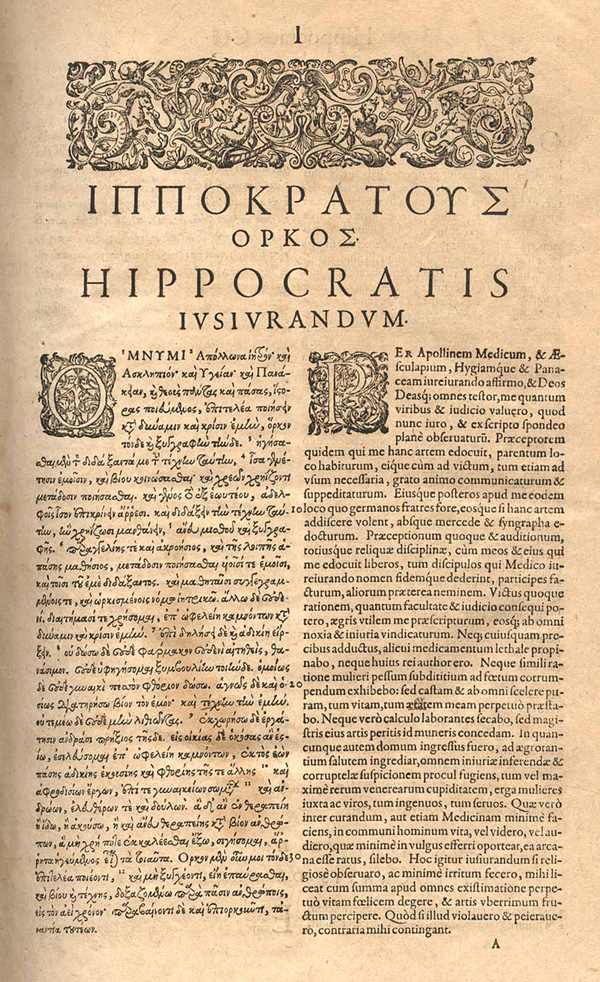
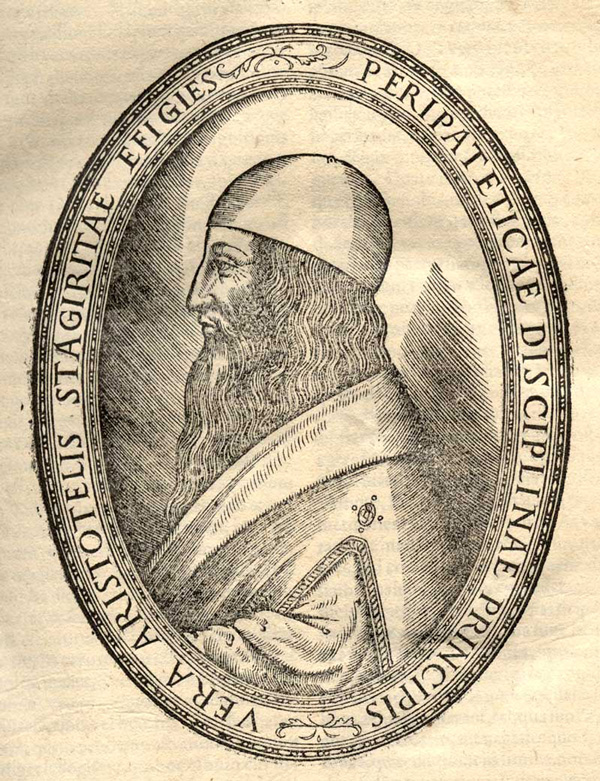
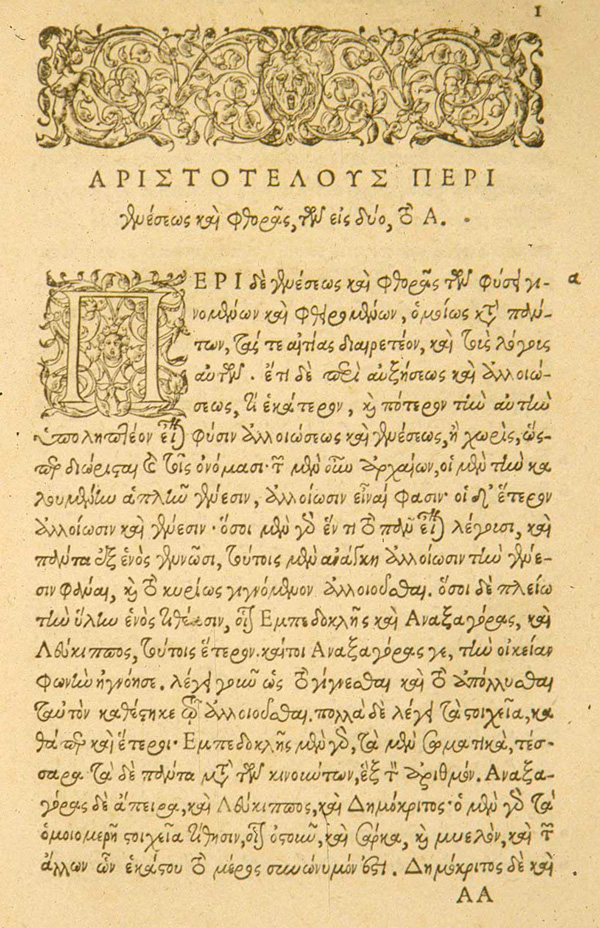
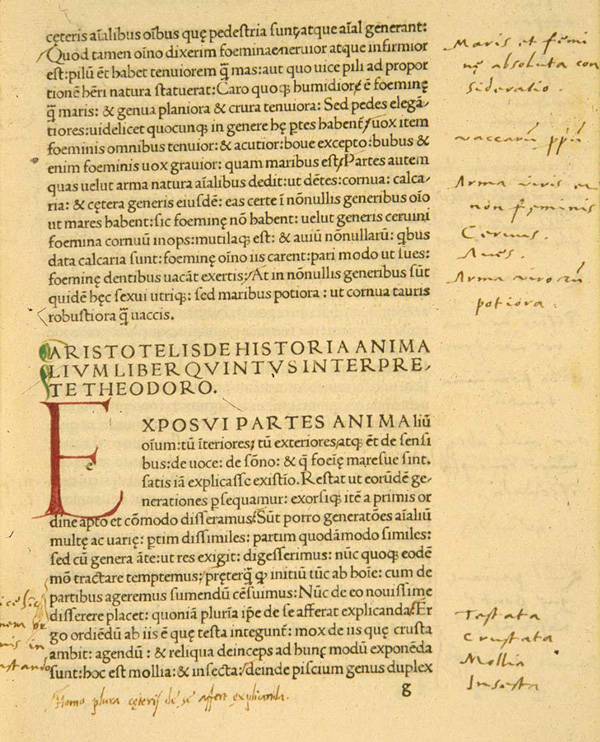
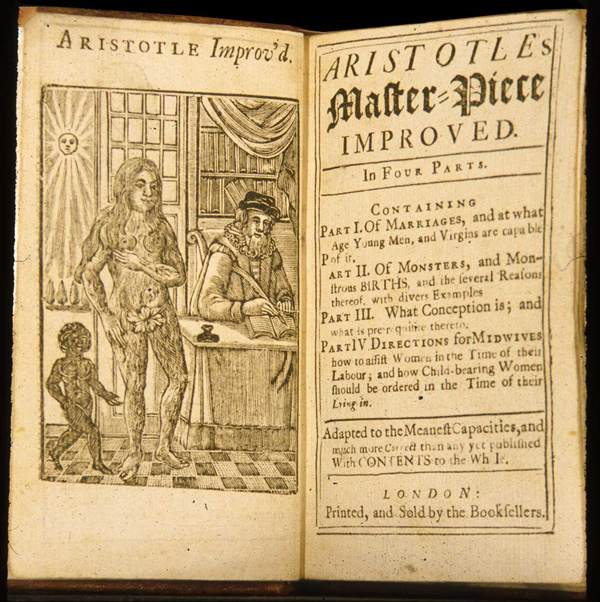
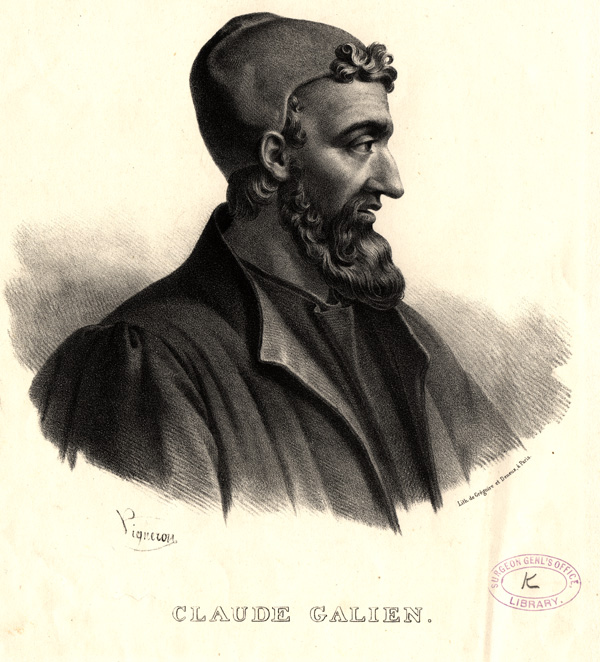
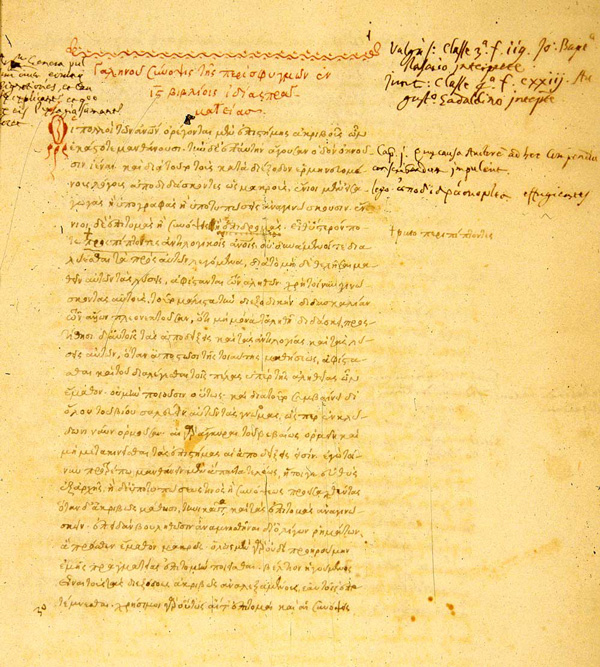
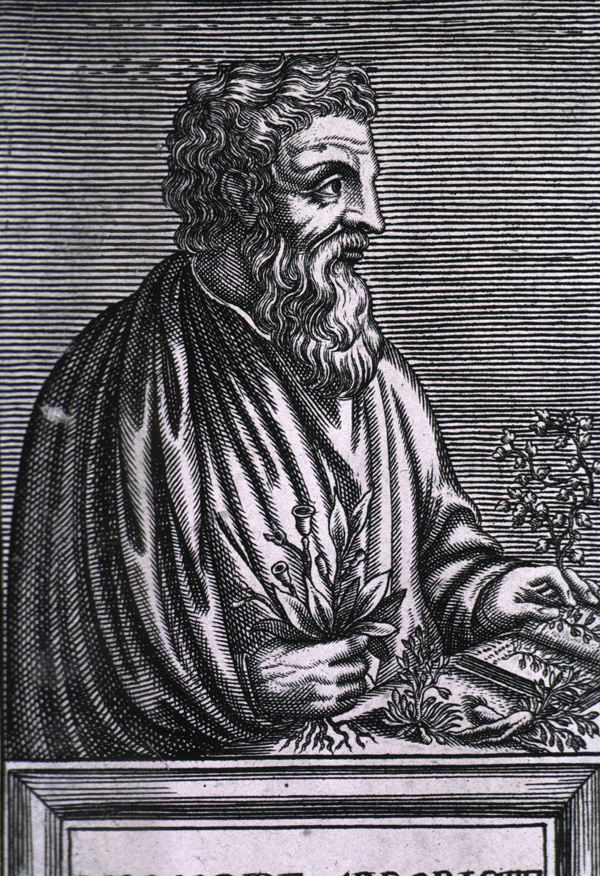
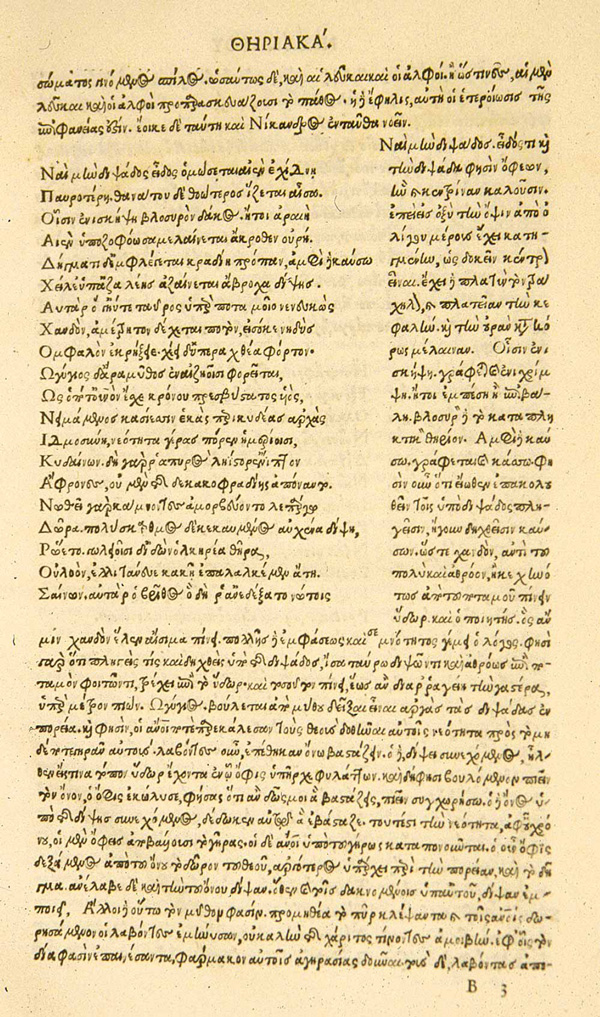
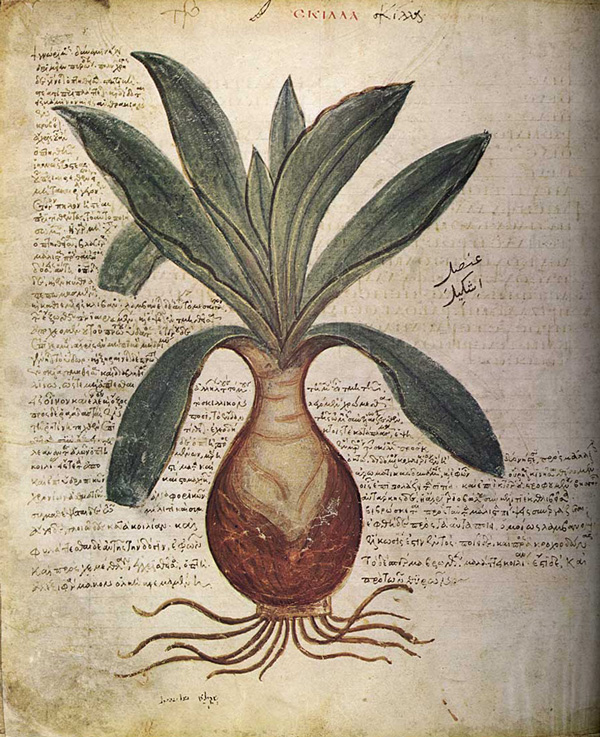
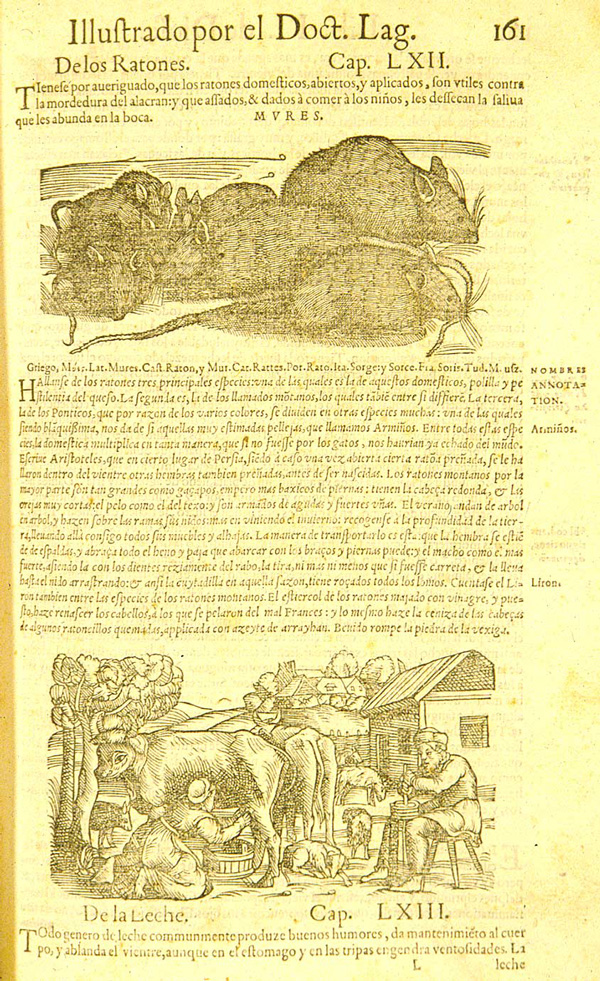
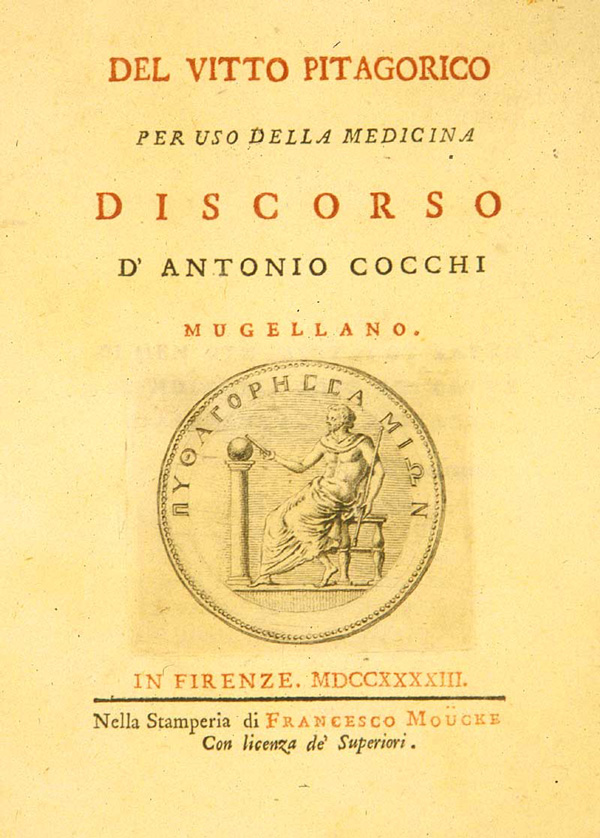
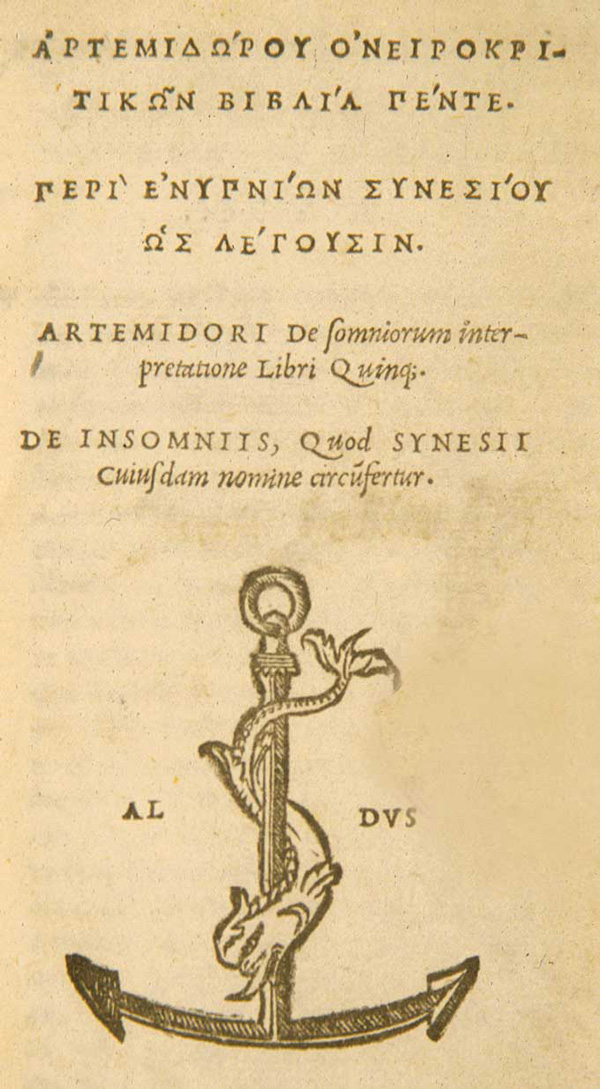
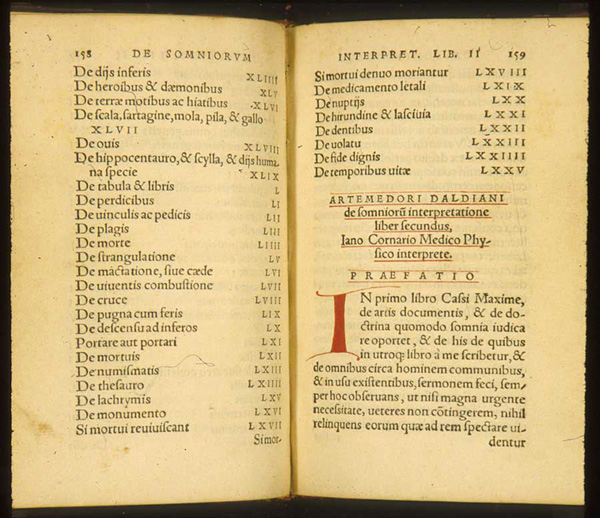
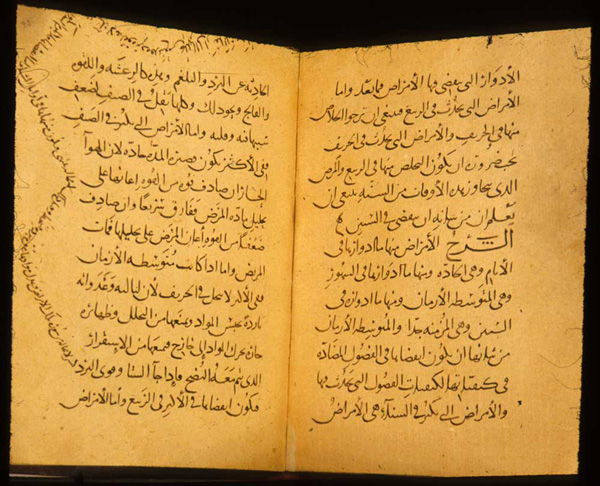
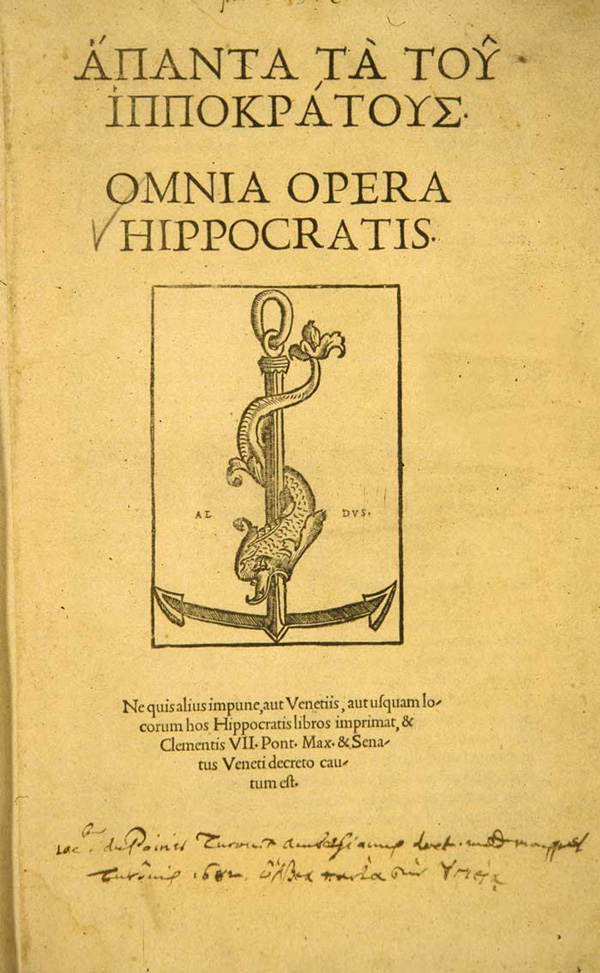
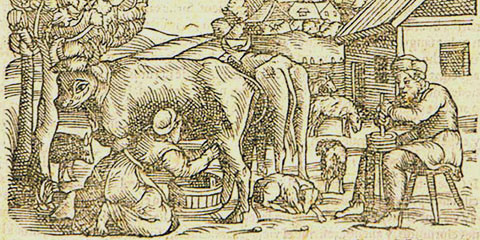 Timeline
Timeline
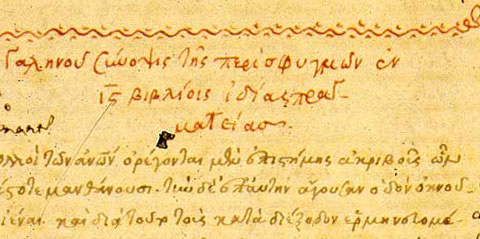 Greek Words in the Modern English
Greek Words in the Modern English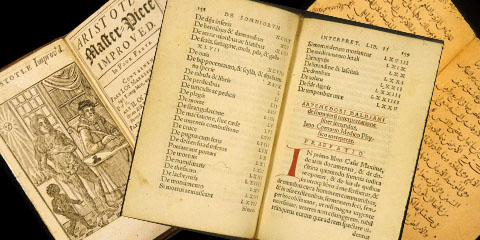 Further Reading
Further Reading